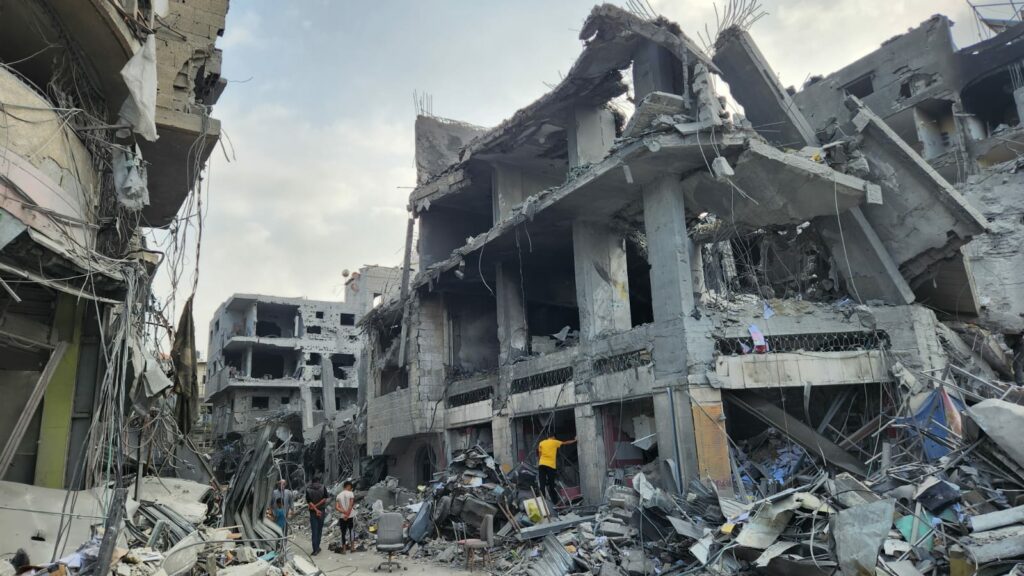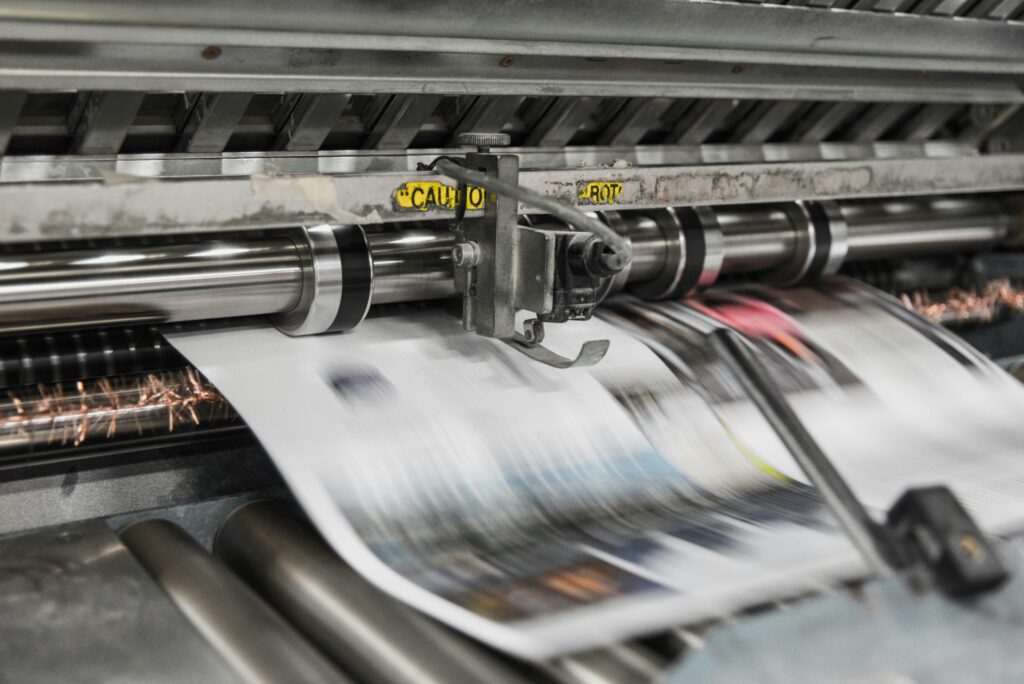Sarah Rees, from Oxfam Cymru, relays the accounts and experiences of her colleagues based in Gaza.
It’s the nights that my colleagues in Gaza fear the most. The first time Najla had to leave her home, it was 1am. They’d got word that there might be an airstrike nearby. Her children were barefoot as they fled: there’d been no time to grab their slippers. They’re six and nine.
As a parent of similarly aged children, I can only imagine the terror that must have gripped Najla, and parents like her – both in Gaza and in Israel – as they faced human brutality at its worst.
The horrendous escalation of violence in Israel since Hamas’ attack on 7 October and since then in Gaza has taken a terrible toll on Israeli and Palestinian civilians and left people in Gaza in desperate need.
Najla is among the 30 plus staff members that Oxfam has inside Gaza today. Ordinarily, these would be the people providing relief services. But instead, they’re running for their lives, not knowing where the next bomb will fall and if it will be on them and their loved ones.
What’s the current situation?
Like everyone else in Gaza, my colleagues are gasping for water, desperate for food, and running out of battery on their phones. Winter is approaching and with it comes the threat of rampant disease. We simply have no way of keeping our staff safe, because nobody in Gaza is safe. The news that small numbers of aid trucks have begun to cross into Gaza is, of course, welcome. But it’s a drop in the ocean of what’s required. Prior to the hostilities, 104 trucks a day would deliver food to the besieged Gaza Strip, one truck every 14 minutes. Starvation is being used as a weapon of war against civilians in Gaza: with 2.2 million people now in urgent need of food.
Far more aid is needed, and so too is access to fuel: badly needed to power hospitals, ambulances and to pump lifesaving water and sanitation facilities.
Starvation is being used as a weapon of war against civilians in Gaza: with 2.2 million people now in urgent need of food.
Right now, the water situation is absolutely desperate: as with food, nowhere near enough is arriving on the aid trucks and for many people clean water has virtually run out. Some people are even being forced to drink from untreated farm wells. The UN has warned that people – particularly young children – will soon start dying of severe dehydration. All five of Gaza’s wastewater treatment plants and most of its 65 sewage pumping stations have been forced to close. Untreated sewage is now being discharged into the sea and, in some areas, solid waste is accumulating in the streets.
Simply put, Gaza is becoming a breeding ground for cholera and other diseases. And with Gaza’s health infrastructure being obliterated, the situation will only worsen. At the moment, when buildings are flattened, ambulances are often unable to reach the wounded. One Oxfam colleague reported hearing people trapped under the rubble of a collapsed building screaming for help; screaming for ambulances that may never come. Some people have resorted to taking the wounded to hospital on the back of carts pulled by donkeys.
Oxfam’s work on the ground
Oxfam partners have begun a small distribution of soap, shampoo, menstrual products and toothpaste within their communities but the scale of need and logistical chaos pose massive challenges to the humanitarian response. The commitment of our partners to help is inspiring. But no comprehensive humanitarian response can happen without a stop to the violence. There must be a ceasefire now, and the immediate, unconditional release of everyone held captive by armed groups in Gaza, and the border crossings opened for unimpeded humanitarian access.
The events of the last few weeks have led us to the precipice of a humanitarian catastrophe with civilians on all sides paying the price for the failure of leaders to resolve this conflict. The world can no longer wait to act.
My colleague Najla’s words resonate in my ears. “The situation is extremely tense and getting darker,” she said. “Handling my kids really is my priority. Handling how they deal with the fear… Just trying to keep them safe, just manage their screams when they hear the bombings.”
The commitment of our partners to help is inspiring. But no comprehensive humanitarian response can happen without a stop to the violence.
“Please,” said another colleague; “tell our stories; even if we’re not alive to do it ourselves”. We must bear collective witness to the events unfolding before us. We must not be bystanders.
Oxfam was founded in the belief that even in the darkness of war civilian lives – on all sides of a conflict – must be protected. It is time to end the violations and violence. A path to peace and justice for all, that includes a fair future for both Palestinian and Israeli people, is the only way to herald the new dawn that Palestinians and Israelis alike both need and deserve.
Call for a ceasefire now. Add your voice here.
Please also donate what you can today to help Oxfam’s teams and partners respond to help the people of Gaza as soon as it’s safe.
All articles published on the welsh agenda are subject to IWA’s disclaimer. If you want to support our work tackling Wales’ key challenges, consider becoming a member.





